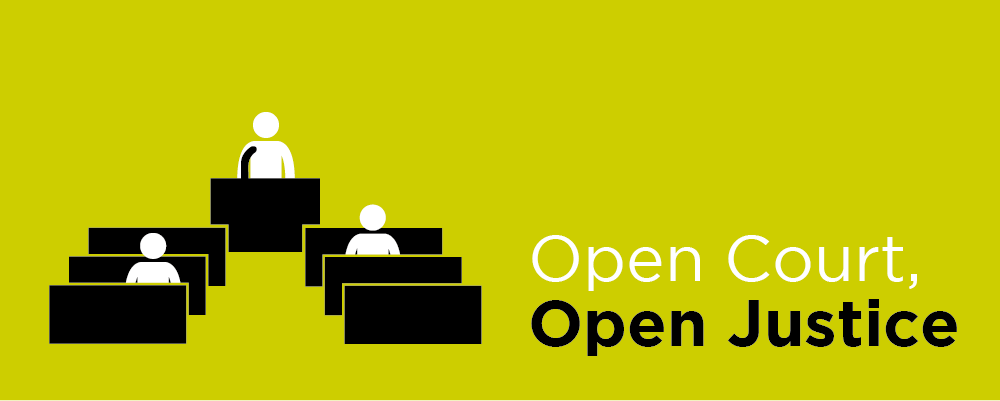- Basildon 01268244144
- Chelmsford 01245453800
- Colchester 01206217300
- London 020 4586 1280

Generally, family court cases are held in private. That said, the press and other accredited reporting organisations still attend family law court hearings unless there are certain circumstances where the court specifically orders their non-attendance.
Since October 2018, permission to attend family court cases has been extended to others, including those in research or public legal education and legal bloggers.
Despite having the right to attend a family court case, the press and media remained under restriction as to what it could report about a case, failing which they would fall foul to being held in contempt of court.
Additionally, further restrictions concerning children’s proceedings are in place to ensure that any child involved in a case can not be identified, including details of their school or home address.
Of course, it is a matter for each family court to consider whether any further and/or additional reporting restrictions apply to a particular case and/or whether such reporting restrictions can be lifted. This is a careful and balanced exercise, and each case must be decided on its own circumstances.
How has this developed?
Over the years, several organisations have campaigned for transparency in the family courts which, to members of the public, is shrouded in myth and mystery.
Whilst a limited number of cases are published (with most not naming the parties or children), these cases are generally published for the purpose of providing better guidance, an interpretation of legislation and/or where the circumstances of a case are unusual or where a case has set a precedent. Some may be published simply because there is limited information in the public domain.
In October 2021, Sir Andrew McFarlane, the President of the family division published guidance. This was following the undertaking of a review on court transparency. He said he had “reached a conclusion that there had been a major shift in culture and process to increase the transparency in a number of respects”. He concluded that it was possible to achieve the twin principles of public confidence and party confidentiality. He added that it was time for the accredited media not only to be able to attend family court hearings, but to also report publicly on what they observe and hear, subject to the rules to maintain privacy, confidentiality and anonymity.
What is being implemented
Sir Andrew has since been leading the process of implementing change and on 30 January 2023, it was announced that journalists can now report on what they observe and hear in family courts at three locations, namely Leeds, Cardiff and Carlisle as part of the Transparency Reporting Pilot scheme aimed to improve transparency in the family Justice system. The cases that can be reported on are that of Public Children Law cases i.e., where the State seeks to intervene in a family where they believe intervention is necessary to either share parental responsibility with the parent(s) or to remove a child from the family. The objective of the pilot scheme is to achieve and promote the public’s confidence in the family Justice System and accountability.
How the changes could affect family law cases
The Transparency Report pilot scheme will run for 12 months. Following a period of 6 to 8 weeks, Private Children Law (i.e. disputes between parents) may also be reported upon. This will also include any remote court hearings. Cases involving adoption, domestic abuse cases and financial remedies applications do not fall within the pilot scheme.
Accredited members of the media will still have in place a Transparency Order setting out what can and cannot be reported. The accredited media will, for the first time, be able to have access to certain court documents. It remains that the media cannot name a child, their home and school although Judges, legal professionals and local authorities can be named.
Only time will tell how successful the pilot scheme shall be and whether the Family Justice System will ever reach parity with its sibling, the Criminal Justice System, with its openness and transparency.
As it stands, the accredited media are still able to request court permission to report certain aspects and, following a carefully balanced exercise, having heard any objections from any of the parties involved, the court will make a decision. Presently the court’s daily list of court hearings is not open to the media, so unless they know or are told by someone about a case, they may miss the opportunity to attend a hearing.
As much as it may be of interest to members of the public to know of the private lives of others, there is undoubtedly a price to pay which is ultimately the diminishing of privacy in the private lives of family.
As to how many cases shall be reported by the media is yet to be seen. It should be borne in mind that, according to the family court Quarterly Statistics, in 2021 at total number of 151,505 applications were started (16,413 – Public Children Law; 56,671 Private Children Law; 45,574 Financial Remedies; and 32,874 Domestic Abuse).
This compares to figures for the first three quarters of 2022 totalling 107,665 cases (12,432 Public Children Law; 41,575 Private Children Law; 29,525 Financial Remedies; and 24,133 Domestic Abuse). The last quarter of 2022 is yet to be published and full statistical information can be found on the following link: Family Court Statistics Quarterly - GOV.UK (www.gov.uk).
My colleague, Francesca Cozens, will be providing information on the Better Divorce Course funded by the Essex Council in a blog next week but, In the meantime, should you require any information in relation to private family matters including that of divorce, child arrangements and/or finances and or queries concerning the family courts, please do not hesitate to contact me on 01268 824938 or via email at muntech.kaur@birkettlong.co.uk



Comments